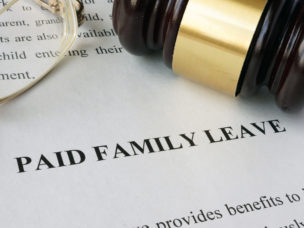Stay in the know
Subscribe to the Employment Blog and we'll send you an email each time something new is posted.
Subscribe to the Employment Blog and we'll send you an email each time something new is posted.
Blogs
Employment Blog
One Year and Counting: Employee Rights in a Post-COVID Workplace
One year into the pandemic, life feels as uncertain as ever. This uncertainty extends to questions about employee rights and protections in the workplace. Some new rights have come to be or may be on the horizon, and other existing rights have been illuminated. However, across the spectrum of employee rights and protections, there are still major gaps.
What’s New
While not specifically enacted in response to the COVID-19 pandemic, parts of the new Massachusetts Paid Family Medical Leave Act went into effect on January 1, 2021. Employees are now entitled to paid, job-protected leave for a number of reasons, including their own serious health condition, for which an employee is entitled to up to 20 weeks of paid leave per year. Beginning on July 1, 2021, employees will also become entitled to paid leave to care for a family member with a serious health condition for up to 12 weeks per year.
What’s Newly Useful
Anti-discrimination statutes, such as the Americans with Disabilities Act and its Massachusetts counterpart, Chapter 151B, require employers to provide disabled employees reasonable accommodations that allow them to perform the essential functions of their job. Recently, a number of employees have successfully brought claims that, during the pandemic, being at high-risk for COVID-19 is a disability that employers must reasonably accommodate. In one such case, an employee with asthma won a court order forcing his employer to permit him to work from home as a reasonable accommodation. See Peeples v. Clinical Support Options, Inc. (D. Mass. Sept. 16, 2020)
Other existing laws may be helpful to employees struggling through the pandemic. For example, since 2015, most Massachusetts employers have been required to provide employees with paid sick time under the Earned Sick Time Law. At the federal level, the Family Medical Leave Act requires most employers to provide 12 weeks of job-protected leave to employees unable to work due to a serious health condition, or those caring for an immediate family member with a serious health condition. This leave, however, may be unpaid.
What’s Missing
You may have read about last year’s Families First Coronavirus Response Act, which required certain employers to provide employees paid leave for a series of qualifying reasons, including childcare, quarantine, and COVID-19 symptoms. That statute, unfortunately, lapsed on December 31, 2020.[1]
Right now, there is no federal law that requires employers to provide paid leave. President Biden’s current proposal does have certain paid leave provisions, but it is too soon to know what will ultimately become law.
The employee rights landscape in COVID-19 times is constantly changing and the benefit of experienced counsel when navigating such issues cannot be understated. If you have questions about your rights, contact an employment attorney at Sherin and Lodgen.




